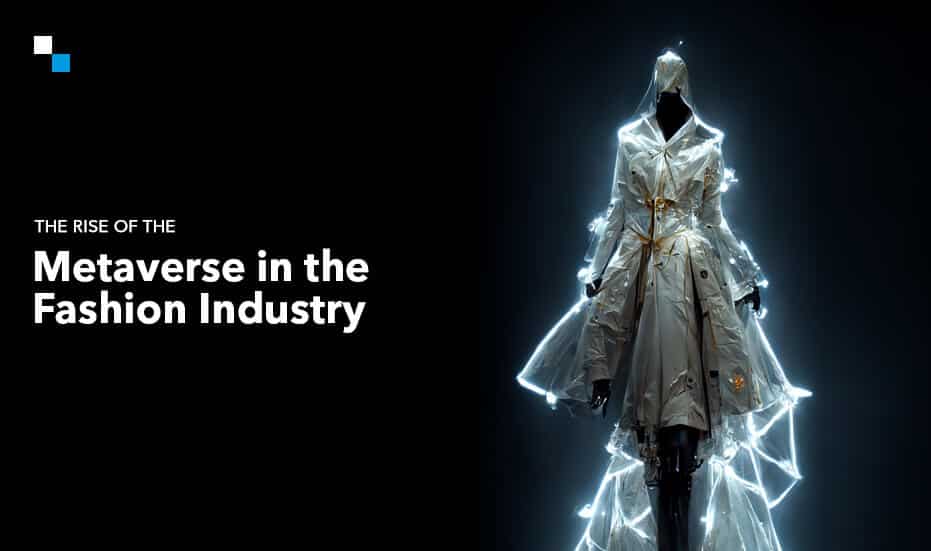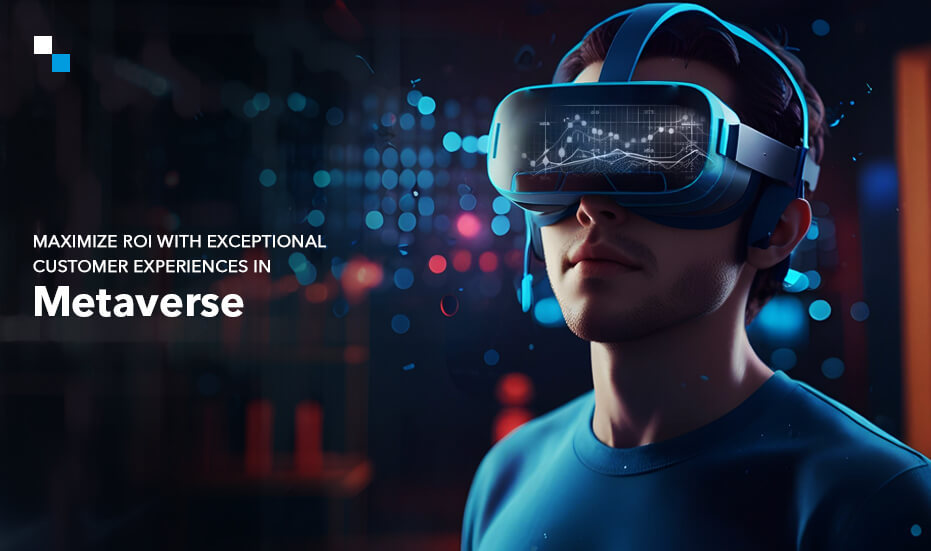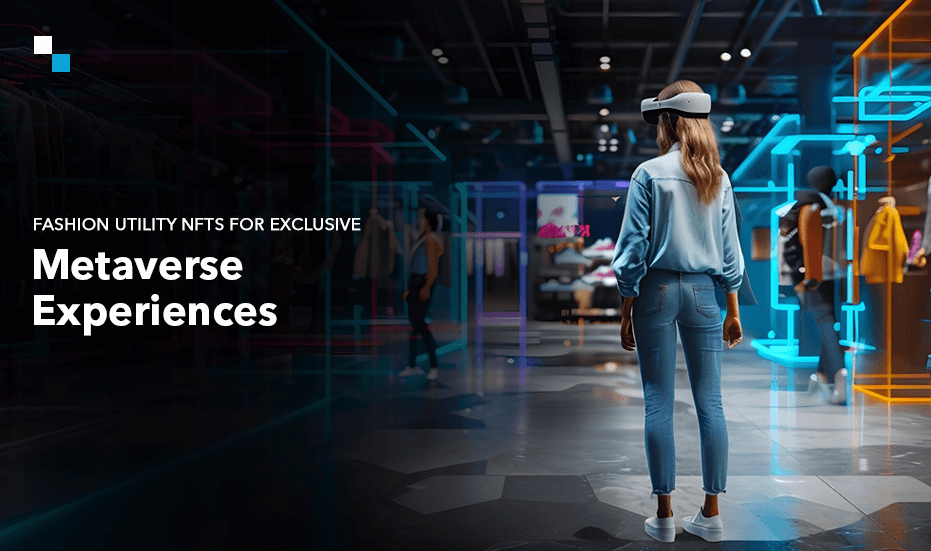
Unveiling the Role of Blockchain Supply Chain Solutions in Combating Vaccine Falsification
March 21, 2024
How Do Payment Gateways Ensure Hassle-Free White Label Crypto Wallets?
March 21, 2024The fashion industry has been constantly embracing evolution. Whether in manufacturing, marketing, or retail, the industry consistently demonstrates agility in embracing new trends and technologies. Presently, the metaverse fashion solutions stand at the forefront of innovation, revolutionizing the fashion experience. Within the metaverse, brands harness cutting-edge technologies such as virtual reality, blockchain, and NFTs to craft immersive encounters that break boundaries between physical and digital realms.
The Impact of the Metaverse on Fashion Industry
The integration of the metaverse into the fashion sector is reshaping the fashion experience, revolutionizing how brands interact with consumers, drive revenue, and present their products. Here are three innovative ways in which fashion in the metaverse is changing the game.
- Virtual Fashion Presentations
Virtual fashion presentations are gaining traction within the metaverse. Brands are utilizing these platforms to exhibit their collections, engage with their audience, and craft immersive experiences. These virtual showcases promote inclusivity by enabling global audiences to participate in real-time, while also offering cost-effective alternatives that eliminate the need for expensive venues, models, and other traditional resources. Many participants in Web3 initiatives view virtual fashion shows as a groundbreaking advancement within the Metaverse Fashion Industry.
- The Influence of NFTs on the Fashion Industry
Non-fungible tokens (NFTs) are digital collectibles that are revolutionizing revenue streams for fashion labels. NFTs are one of the valuable metaverse fashion solutions that serve as genuine digital assets that can be possessed, exchanged, and traded akin to physical collectibles. Fashion brands are innovating by introducing limited-edition NFTs linked to tangible products, offering customers novel avenues to engage with their preferred brands. NFTs are reshaping the fashion landscape by empowering designers and brands to craft exclusive and authentic digital collectibles, presenting a fresh revenue stream where select assets have fetched millions of dollars.
- Virtual Fitting Rooms
Virtual fitting rooms represent the future of fashion within the Metaverse, offering customers the opportunity to virtually try on clothing items, enhancing the shopping experience with interactivity and immersion. These digital fitting rooms serve to mitigate return risks by enabling customers to visualize how garments fit and appear before committing to a purchase. Beyond their sustainability advantages over traditional dressing rooms, reducing fashion industry waste, fashion in the metaverse enables users to experiment with NFT wearables on their metaverse avatars, fostering engaging and gamified experiences.
Brands can enhance their e-commerce platforms by integrating these immersive experiences directly onto their websites through specialized 3D environments.
Fashion Brands that Pioneered into the Metaverse
- Gucci
In 2021, the renowned luxury fashion house Gucci partnered with Roblox to launch a virtual garden exhibition in honor of its centenary celebrations. Named ‘Gucci Garden,’ this interactive multimedia showcase commemorated Gucci’s legacy through six distinct themed rooms, offering users the opportunity to acquire exclusive designs to adorn their avatars.
Throughout the exhibition, attendees had the chance to acquire a limited selection of NFT collectibles, with some fetching prices surpassing their real-world counterparts in subsequent resale transactions.
- Burberry
In 2021, Burberry invested in metaverse development services to introduce an exclusive Burberry-themed NFT assortment within the multiplayer metaverse game ‘Blankos Block Party.’ One standout NFT, the ‘Sharky B’ avatar, swiftly sold out in just 30 seconds and later fetched over $1,000 on the game’s dedicated marketplace, despite its initial price of $300 and a limited release of 750 units.
Building on the triumph of this launch, Burberry unveiled a subsequent NFT collection on Blankos the following year, featuring virtual iterations of branded boomboxes, necklaces, and sliders. Additionally, they curated a personalized virtual environment within the game to facilitate connections among Burberry enthusiasts, further solidifying their engagement with the digital realm.
- Vans
Renowned for their skateboarding merchandise, Vans is a brand that has ventured into the metaverse by leveraging the immensely popular Roblox platform to craft a unique interactive engagement for their customers.
In late 2021, they introduced ‘Vans World,’ a virtual skatepark where enthusiasts can convene online to engage and refine their virtual skateboarding abilities. Within this digital realm, users have the opportunity to earn, purchase, and exchange exclusive Vans apparel.
Drawing inspiration from authentic Vans initiatives, the virtual skatepark’s design mirrors real-world projects. Vans’ initiative to take fashion in the metaverse aims to attract a fresh audience while delving into sustainable fashion practices and bridging the gap between physical and digital realms.
- Forever 21
At the end of 2021, the fast-fashion label Forever 21 introduced ‘Forever 21 Shop City,’ a community-centric game developed in collaboration with Roblox. This interactive platform empowers players to construct, personalize, and oversee their virtual fashion boutiques, fostering self-expression as they engage in buying and selling Forever 21 products. Since its inception, over 250,000 users have explored Forever 21 Shop City.
Subsequently, Forever 21 has endeavored to bridge the gap between the virtual and physical realms. Commemorating its one-year presence on Roblox, the brand recently unveiled the F21 Metaverse Collection, drawing inspiration from digital fashion available on Roblox. This physical collection encompasses hoodies, t-shirts, and a tangible rendition of the popular Forever Beanie – a top-selling item from their virtual Roblox store.
- H&M
In early 2023, H&M, the renowned fashion brand, introduced its inaugural digital showroom in the metaverse, offering metaverse fashion solutions. Within this innovative space, visitors could freely navigate, engage with fellow users, and peruse the virtual collection, aiming to breathe life into fashion campaigns within a novel and captivating Web3 e-commerce environment.
With ambitious visions for the metaverse, H&M envisions it as a convergence point for physical and digital existences.
To Sum Up
The fashion landscape is undergoing a profound transformation due to the emergence of the metaverse, offering brands innovative avenues to connect with customers, drive revenue, and exhibit their products. The fusion of fashion and technology is gaining paramount significance, compelling fashion entities to adopt cutting-edge technologies to retain competitiveness within the sector. Concurrently, fashion in the metaverse is fostering collaborations between fashion brands, technology firms, and digital artists.
As the metaverse continues its rapid evolution, fashion brands that invest in metaverse development services stand poised to revolutionize the industry and establish new benchmarks for creativity, innovation, and customer engagement. The convergence of fashion and the metaverse presents a dynamic and swiftly evolving terrain, promising exciting prospects for brands that integrate seamlessly into this transformative realm.



